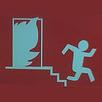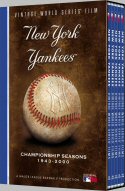|
Larry Mahnken and SG's | ||
|
| Replacement Level Yankees Weblog |

|
|
"Hey, it's free!" | ||
|
|
|
Larry Mahnken and SG's | ||
|
| Replacement Level Yankees Weblog |

|
|
"Hey, it's free!" | ||
|
|
|
Featuring: Larry Mahnken SG sjohnny TVerik Sean McNally Fabian McNally John Brattain This is an awesome FREE site, where you can win money and gift certificates with no skill involved! If you're bored, I HIGHLY recommend checking it out!
 
The New York Yankees Vintage World Series Films DVD Set, available from A&E. Yankees Tickets World Series Tickets MLB All Star Tickets NFL Tickets Purchase your Onlineseats.com is your #1 source for MLB tickets, NY Mets Tickets, Cubs Tickets, Yankees Tickets, Red Sox Tickets, Giants Tickets, Astros Tickets, Angels Tickets, Phillies Tickets.
Buy all your MLB Tickets,
Laser Keyboard Brazil Flowers TickCo.com for premium New York Yankees Tickets Boston Red Sox Tickets Chicago white Sox Tickets A's Tickets Angels Tickets New York Mets Tickets St Louis Cardinals Tickets Cubs Tickets Dodgers Tickets "I'm not a pessimist, I'm an optimist. Things are really worse than I say they are." - Steve South

January 2001 April 2003 May 2003 June 2003 July 2003 August 2003 September 2003 October 2003 November 2003 December 2003 January 2004 February 2004 March 2004 April 2004 May 2004 June 2004 July 2004 August 2004 September 2004 October 2004 November 2004 December 2004 January 2005 February 2005 March 2005 April 2005 May 2005 June 2005 July 2005 August 2005 September 2005 October 2005 November 2005 December 2005 January 2006 February 2006 March 2006 April 2006 May 2006 June 2006 July 2006 August 2006 September 2006 October 2006 November 2006 December 2006 January 2007 February 2007 March 2007 April 2007 May 2007 LINKS Yankees Sites and Columnists Nomaas.org General Baseball Sites & Columnists At Home Plate Rotoauthority.com The Book Blog - Playing the Percentages in Baseball(Tango, MGL, Dolphin) Yankees Blogs Almost Perfect Baby Bombers Baseball Mania Bronx Banter Bugs and Cranks Canyon of Heroes Dugout News Eephus Pitch Here Comes Number 27 High and Tight Lohud Yankees Blog No Sense Worrying Pinstripe Potentials River Ave. Blues Soft Hands The Stat Boy of the Empire Was Watching Yankees Chick Yankees Fans in Foreign Lands Yanks Blog Other Team Blogs Anaheim Angels All the Way Bucco Blog San Francisco Giants Blog Viva El Birdos Look what people have to say about Larry Mahnken's commentary! "Larry, can you be any more of a Yankee apologist?.... Just look past your Yankee myopia and try some objectivity." "Mr. Mahnken is enlightened."
"Wow, Larry. You've produced 25% of the comments on this thread and
said nothing meaningful. That's impressive, even for you."
"After reading all your postings and daily weblog...I believe you have truly become the Phil Pepe of this generation. Now this is not necessarily a good thing."
"you blog sucks, it reeds as it was written by the queer son of mike lupica and roids clemens. i could write a better column by letting a monkey fuk a typewriter. i dont need no 181 million dollar team to write a blog fukkk the spankeees"
"i think his followers have a different sexual preference than most men"
"Boring and predictable."
"Are you the biggest idiot ever?"
"I'm not qualified to write for online media, let alone mainstream
media."
This site is best viewed with a monitor.
|
Disclaimer: If you think this is the official website of the New York Yankees, you're an idiot. Go away. May 6, 2007
YES - some defensive analysis, please... by TVerik
I haven't posted in awhile... *shakes off rust*
April 2, 2007
Replacement Level Yankees Weblog v2.0 by Larry Mahnken
Come on over and check out our new home! We hope you love it.
March 31, 2007
Farewell, Old Friend by Larry Mahnken
OK, sometimes things don't go as planned, so don't get on my case if things turn out slightly differently than I say here.
March 29, 2007
Looking Ahead to 2007: The Yankee Bullpen by SG
Opening Day is less than just around the corner, so it's time to wrap up my 2007 Yankees previews with a look at the Yankee bullpen. Last year, Yankee relievers pitched a total of 510 innings, and ended up being about 3 runs above average collectively as a group. The bulk of that was the performance of the incomparable Mariano Rivera and Scott Proctor finally getting results that matched his talent.
NJ.com - Yankees: Phelps' chance has come, but Villone may go by SG
March 27, 2007
Looking Ahead to 2007: Andy Pettitte & Kei Igawa by SG
With the regular season approaching faster than I realized, it's time to start doubling up my preview posts. So I'll take a look at Andy Pettitte and Kei Igawa together.
March 26, 2007
Looking Ahead to 2007: Carl Pavano by SG
Pavano's an easy person to write up, because there's no performance record to analyze for 2006. With Chien-Ming Wang's hamstring injury, Andy Pettitte's back spasms, Mike Mussina's creature-of-habitness, and Kei Igawa's nerves all in issue, Pavano is looking like the likely opening day starter for the Yankees this season. Here's a look back at Yankee opening day starters of recent vintage.
March 25, 2007
Looking Ahead to 2007: Chien-Ming Wang by SG
March 24, 2007
Fox Sports.com: Wang to start season on DL by SG
March 23, 2007
Good News, Bad News by Larry Mahnken
The RLYW is one of the four blogs selected by SI for their poll on "Best Yankees Blog". That's awesome.
YesNetwork.com: Pavano still shaky by SG
March 22, 2007
Newsday: Got Melky? Yanks glad they do by SG
March 20, 2007
The 2007 Diamond Mind Projection Blowout by SG
It's that time of the year again, where I run some different projection systems through a multitude of Diamond Mind Baseball simulations to see how the MLB 2007 season projects.
North Jersey.com: Yanks' Mientkiewicz back in the swing of things by SG
March 18, 2007
Looking Ahead to 2007: Mike Mussina by SG
Mike Mussina put up two of the worst seasons of his career in 2004 and 2005. Entering the final guaranteed year of his contract at age 37, a rebound seemed to be less likely than a continued descent. However, a spring training discovery by Jorge Posada that Mussina's grip was tipping his changeup was credited with Mussina rebounding last season. I think improved health was also a factor.
March 16, 2007
Yankees.com - Notes: Igawa still making adjustments by SG
March 14, 2007
Looking Ahead to 2007: The Bench by SG
I'll wrap up my Looking Ahead pieces for the position players with the Yankee bench. I already looked at the backup catcher candidates here, as well as Melky Cabrera here, so let's finish it off with a look at Miguel Cairo, Andy Phillips, and Josh Phelps.
March 13, 2007
Looking Ahead to 2007: Alex Rodriguez by SG
After winning the MVP in 2005, Alex Rodriguez had what was a down year for him in 2006. It's a testament to Rodriguez's ability and talent that a 35 HR, .290/.392/.523 season would be considered disappointing, but that's the price of being the highest paid player in the game on a team that did not achieve its stated goal in 2006.
| ||||||||||